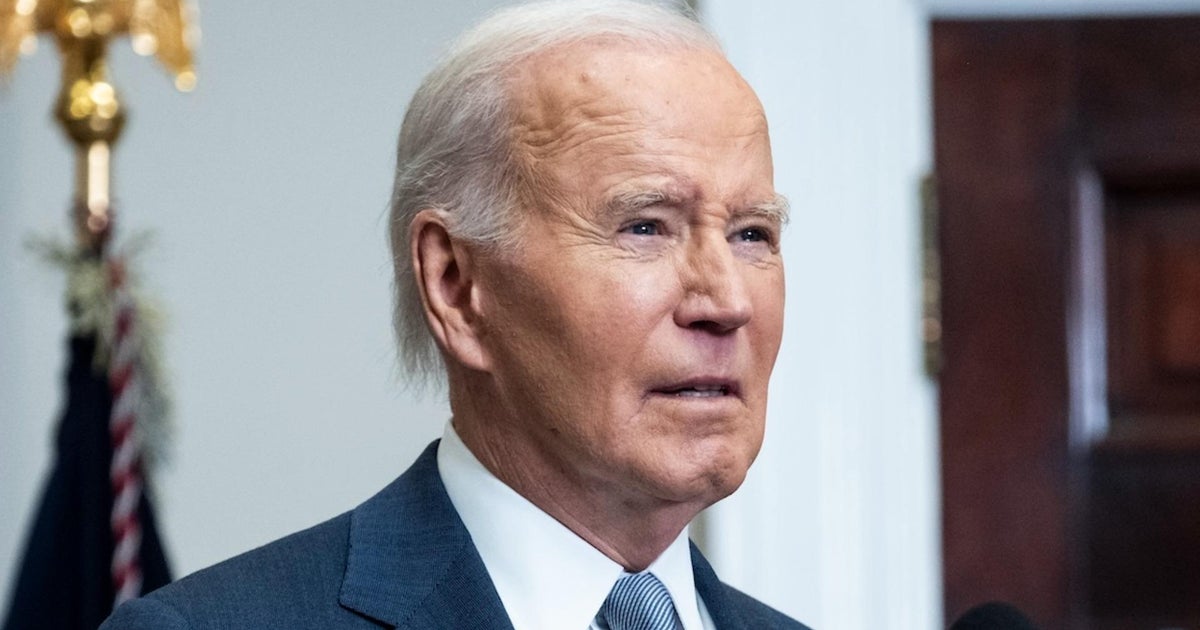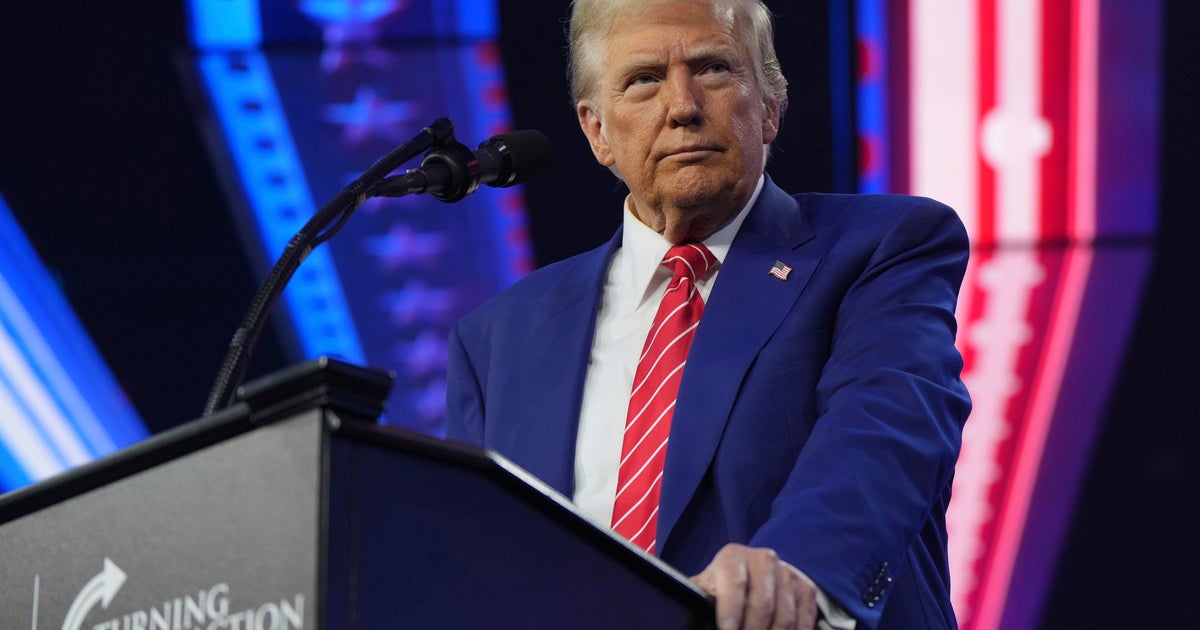2020 Daily Trail Markers: CBS News to co-host Democratic debate in South Carolina
CBS News will be co-hosting a debate next year in Charleston, South Carolina with the Congressional Black Caucus Institute on February 25, 2020, at The Gaillard Center. Twitter is also a partner.
CBS News political unit associate producer Sarah Ewall-Wice says the debate is one of four announced by the Democratic National Committee (DNC) on Thursday to take place in early caucus or primary states next year. Here are the others announced Thursday:
- CNN and The Des Moines Register will also host a debate January 14 at Drake University in Des Moines, Iowa.
- ABC, WMUR-TV and Apple News will host one February 7 at St. Anselm College in Manchester, New Hampshire.
- NBC News and MSNBC in partnership with The Nevada Independent will host one February 19 in Las Vegas.
The DNC plans to announce the qualifications to participate, criteria and moderators for all four debates at a future date.
The scheduled debates come as it looks more likely five of the Democratic presidential candidates who are also sitting senators could be jurors in a Senate impeachment trial of President Trump early next year in Washington, D.C. DNC communications director Xochitl Hinojosa acknowledged the potential scheduling conflict Thursday afternoon, tweeting about the debates, "And if a conflict with an impeachment trial is unavoidable, the DNC will evaluate its options and work with all the candidates to accommodate them."
Meanwhile, a CBS News analysis finds that seven candidates will get to take the stage in the final Democratic presidential debate of 2019, the smallest group of candidates of any of the six debates held this year. This comes just before the Thursday deadline to qualify with both the donor threshold and polling.
Candidates who have qualified are Joe Biden, Pete Buttigieg, Amy Klobuchar, Bernie Sanders, Tom Steyer, Elizabeth Warren and Andrew Yang.
According to CBS News analysis, each met the necessary 200,000 unique donor threshold and had 4% polling in four qualified polls or 6% polling in two qualified state polls. The DNC will officially confirm participants following the deadline, but as the window closes no other candidates were close to meeting the qualifications.
Tulsi Gabbard met the donor threshold and was shy one poll but said she would not attend the debate either way. Cory Booker and Julian Castro both met the donor threshold but had not met the polling requirement. In an email to supporters, Castro claimed he didn't need the debate stage to see differences between the candidates. Booker also sent out an email saying even if he's not on the stage, he'll be on the road next week to share his vision and hear directly from voters. The debate will take place December 19 in Los Angeles and will be co-hosted by PBS NewsHour and Politico.
FROM THE CANDIDATES
MICHAEL BLOOMBERG
According to a doctor from John's Hopkins Hospital, former New York Mayor Michael Bloomberg is "a 77-year-old man in outstanding health." In a letter obtained by CBS News campaign reporter Tim Perry, Dr. Stephen D. Sisson says Bloomberg is "in great physical shape," and says "his diet and health habits are excellent."
Bloomberg is a graduate of Johns Hopkins University and donates to the university regularly. According to the New York Times Bloomberg has donated more than $3.35 billion to the university.
CORY BOOKER
On a call with reporters this morning, Senator Cory Booker's campaign manager said the team believes Booker can still capture the Democratic nomination even if he's not on the December debate stage.
"We still see a path to victory in the Democratic nomination that does not include the December debate stage as a requirement," Booker campaign manager Addisu Demissie said. CBS News campaign reporter Jack Turman says Booker will be coming to Iowa the day of the debate, though he has not qualified to appear onstage.
The Iowa trip will be a multi-day open press bus tour. Demissie said the campaign is making a $500,000 digital and television advertising buy in Iowa. A super PAC has launched television ads supporting Booker in Iowa, but the campaign itself has not bought television advertising time in the state. Demissie also said the campaign has raised more than $3 million since the November debate. He added that the campaign wants Booker to be in Iowa as much as possible and plans to return soon after Christmas.
Booker's campaign rolled out 23 new endorsements from Iowa elected officials and activists Thursday. CBS News campaign reporter Adam Brewster says the list includes Johnson County Supervisor Royceann Porter, who was the first African-American woman to hold county-wide office in Johnson County. She endorsed Booker during his visit to Iowa on Saturday.
"He was always someone I would endorse. And now he's doing well here in Iowa," Porter told the Iowa Press Citizen.
Booker was also endorsed at that event by Iowa Mental Health Advocacy founders Scott and Leslie Carpenter. He now has more than 100 endorsements from elected officials and activists in Iowa.
JULIAN CASTRO
Julián Castro announced a slew of new endorsements this week, including four new backers in Nevada. CBS News campaign reporter Alex Tin says among them is state Assemblywoman Selena Torres, a Las Vegas-area middle school teacher who's been invited to a number of events by different campaigns hoping to win her over. The endorsements come as Castro touts being the first presidential candidate to sign the "Teachers 2020 pledge," an education platform from the National Board for Professional Teaching Standards.
ELIZABETH WARREN
Elizabeth Warren delivered a speech Thursday that drew a contrast with each of her leading Democratic rivals.
"We know how big the problems are and right now no one is proposing kinds of solutions that address those problems," she told reporters after the New Hampshire event.
The appearance had been billed as a speech about how Warren's plans all address corruption and economic reform, but she also used the opportunity to delineate the differences between her campaign and the other presidential contenders, more so than in any other campaign event she's held up to this point.
Warren only used opponent Michael Bloomberg's name as she spoke about the failure of other candidates to embrace the kind of "big structural change" she calls for. Her sharpest attack against an opponent was aimed at Pete Buttigieg. The two have been clashing regularly over the past month.
"We know that another calls the people who raise a quarter million dollars for him his 'National Investors Circle,' and he offers them regular phone calls and special access," Warren said.
Meanwhile, Warren said she isn't "counting on Republican politicians having an epiphany and suddenly supporting the kinds of tax increases on the rich or big business accountability," a clear critique of former Vice President Joe Biden, who has said he thinks congressional Republicans would work with him.
Warren also included a rare moment of political moderation, a veiled contrast between herself and progressive rival Bernie Sanders. "Will I have a magic wand to enact my full agenda," she asked. "Of course not. No president does. I know we will have to compromise," she said.
Warren also hired Anne Wakabayashi as a strategist in Pennsylvania today, a campaign spokesperson said, making her the first Democratic candidate to hire in the state this cycle. The campaign plans to open a field office in Philadelphia in the coming weeks.
KEY CONSTITUENTS
WHAT'S COOKING?
The Culinary Union wrapped up three days of questioning of the presidential candidates this week, their last such events of the year, asking Elizabeth Warren, Bernie Sanders, and Joe Biden each a version of the same question: How would their healthcare plan impact their treasured, hard-fought Culinary health fund?
CBS News campaign reporter Alex Tin says Warren earned applause Monday for her answer, praising their healthcare facilities as "something I want to see replicated all around America." Despite an enthusiastic reception on Tuesday, Sanders faced some shouts of "union healthcare" and "how do we pay for it" as he explained his single-payer approach. And Biden on Wednesday was quick to assure the labor group "you're going to get to keep it with me," lambasting "friends of mine" for their Medicare for All plans.
CONGRESSIONAL COVERAGE
IN THE HOUSE
Just after the House passage of a bill aiming to lower prescription drug costs, the House Democratic campaign arm announced a digital ad buy about health care in competitive districts. Its string of Facebook ads is running in 42 districts where the party's "Frontline" — or most vulnerable members — are based, as well as in 26 Republican districts.
The Democratic Congressional Campaign Committee's modest five-figure digital ad buy is its first set of advertisements in battleground districts since the impeachment process began, after millions has been spent by GOP groups on anti-impeachment ads to pressure Democratic voters.
The DCCC's advertising is keeping its distance from impeachment and embracing healthcare, which it says is the foremost issue on the minds of voters. Each of the spots highlights Thursday's passage of the drug cost bill, named for the late Congressman Elijah Cummings, or criticizes specific Republicans for voting against it.
"I have to tell you I have a very big district, 7,000 square miles. And what I hear most often — it's not impeachment, it's not what's on the front page of the Washington Post. It's what are you going to do about the cost of our prescription drugs? And this bill is an answer to my constituents," freshman Democrat Kim Schrier of Washington said Thursday morning.
Meanwhile, Republicans have been using impeachment as the crux of their advertisement messaging. The American Action Network (AAN) has been one of the biggest spenders and said the group has dropped over $8.5 million for advertisements and specifically, $2 million on digital ads. Their ads target 30 Democrats in swing-state seats, all in districts President Trump won in 2016.



